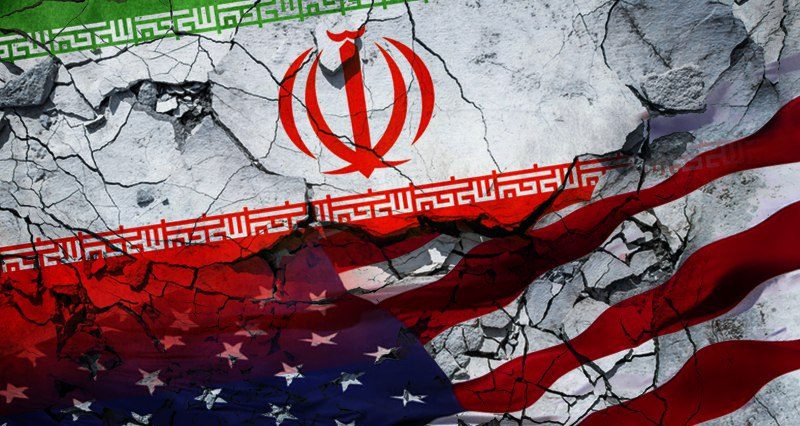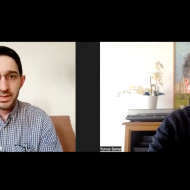In its last days, the Trump Administration seems to succeed in sowing harmony and conflict in the Middle East at the same time. The so called Abraham Accords and the reconciliation of the Gulf countries are led with promises of peace and cooperation, while the US sends simultaneously bombers and aircraft carriers to the Persian Gulf in an obvious threat against the Islamic Republic of Iran.
The “harmonic” part is of course – correctly – also interpreted as constructing a US-led, Israel-serving united Arab front against Iran. But the US confrontation course against Iran will – as this article aims to show –not only target this country but also affect vital Turkish interests.
6 US complaints on Iran are described firstly along US Department of State report “Outlaw Regime: A chronicle of Iran’s Destructive Activities”, published in September 2020, followed by the demands as expressed by Secretary of State, Michael Pompeo in his “12 demands from Iran” speech given in the Heritage foundation.
Secondly follows a description how US pressure on Iran affects vital Turkish national interests on 6 different ways.
And thirdly and concluding, 6 different steps are proposed on how Turkey should react to US pressure against Iran.
The US complaints and demands can be summarized as follows:
1. End of Iranian support for organizations like Hezbollah (Lebanon), Hamas (Palestine), Houthi (Yemen), Shia militias (Iraq),
2. Withdrawal of Iranian forces from Syria and an end to the country’s military and financial support for the Assad Government,
3. End of Iranian proliferation of ballistic missiles,
4. Full access of the IAEA to Iranian nuclear facilities and cancellation of the country’s military nuclear program “permanently and verifiably”,
5. End of threats to Israel, Saudi Arabia and the United Arab Emirates,
6. End of “illicit financial activities that undermine integrity and security of global financial system”.
These US complaints and demands on Iran, accompanied with financial, military and diplomatic pressure on the country work against vital Turkish interests in at least 6 different main points:
6 Effects on vital Turkish interests
1. Territorial integrity and national unity of the Syrian Arab Republic
Turkey’s national interest demands avoiding the ethnical division of its southern neighbor and the build up of an internationally recognized retreat zone for the terror organization PKK.
The US on the other hand has not only provided military, financial and educational support to the Syrian arm of the PKK, it also pressures via sanctions hardened under Trump administration with the Caesar Act the Syrian Government to recognize the PKK entity as an Autonomous Zone within a new Syrian constitution.
Iran allied forces fight on the banks of the Euphrates against PKK-forces labeled as Syrian Democratic Forces, and they are targeted frequently by US air force. The Iranian supported military resistance and financial solidarity helps Syria to resist US plans on ethnic division, thus serving vital Turkish national and security interests.
Withdrawal of Iranian forces and end of financial cooperation between Iran and Syria would open the path to Syria’s division.
2. Territorial integrity and national unity of Iraq
Turkish national interest demands – similar to Syria – the territorial integrity and national unity of Iraq. It is noteworthy that US plans of division had proceeded in Iraq historically further, therefore causing additional difficulties for Turkey’s fight against separatist terror.
The US has occupied Iraq in 2003 and divided the country by abolishing its unitary state and establishing a federal constitution. With US and Israeli support, an Iraqi Kurdish Regional Government was established, which under his leader Massoud Barzani attempted in 2017 a referendum of independence.
Iraqi-Turkish-Iranian cooperation has foiled this referendum, and exactly the Shia militias that the US targets have liberated the oil-rich strategic city of Kirkuk from Barzani occupation.
Today, these Shia groups are considered to be a crucial force against the country’s further division, meanwhile Irani-Iraqi cooperation is a driving force to expel US forces from the country and strengthen Bagdad in its relations vis-à-vis Erbil, IKRG’s capital.
Therefore would the diminishing influence of Iran result in a further division the country, causing additional problems for Turkey’s fight against terror.
3. Regional Multilateralism
Middle Eastern / West Asian countries have – in parallel to the US decline in international politics – displayed various initiatives of regional cooperation and multilateralism.
The long conflict in Syria has born the fruit of the Astana Process between Turkey, Russia and Iran, leading to the end of fighting in various regions of the country.
Different representatives of the US on the other side have declared their unhappiness with the process. The US attempt of diplomatic isolation of Iran as well as the targeted expelling of its forces from Syria is prone to put an end to the Astana Process as well.
Moreover, such a US attempt to sabotage on Iran’s diplomatic and regional relations puts in danger the recent proposal of Turkish President Erdogan to solve the Nagorno-Karabakh conflict in a 6-countries-plattform, including Iran.
4. Financial and defense sovereignty
US demands on Iran aim also at the country’s missile program and according technological international cooperation, “mostly with China”, as the State Department states in its report.
This politics acts according to the US principle that no country can develop a national defense system without prior approval of Washington, a principle that also has led to the so called CAATSA sanctions the US has applied against Turkey due to its purchase of S-400 air defense systems from Russia.
Similarly, the US has applied restrictions on the international finance transfers that Iran realizes, and has started prosecution of Turkish state-owned Halk Bank for violation of these extraterritorial sanctions.
Therefore, US pressure on Iran in matters of defense and finance also targets Turkey’s independence and sovereignty on these fields.
5. Energy security
The main US instrument imposed on Iran is economic sanctions especially in the oil sector. As neighboring to Iran and poor on national energy production, Turkey has been an important trading partner of Teheran. Ankara has imported up to 50% of its national oil consumption from Iran in the years prior to the US embargo.
With the cancellation of Turkey’s exemption from the embargo during the Trump Administration, the country’s oil exports from Iran have dropped to nearly 0 according to official statistics, with Iran disappearing fully from import statistics of recent months.
The obligation to look for different import sources lays a heavy burden on the Turkish economy given the global economic crisis due to COVID and the national foreign reserves crisis.
6. Geopolitical orientation
As the first and second points indicate, aims the US to limit Iranian regional interference to open the path to the foundation of so called “Kurdistan”. If realized, this entity is doomed to turn into a second Israel, as it’s founded on the territory and including the populations of all regional countries, thus becoming dependent on Israel and the US for its survival.
The US expects in exchange this entity to disrupt a global tendency – the rise and integration of Asia.
Turkey in contrast has started to orient itself economically and politically more toward Asia, participating in the Chinese proposal of “One Belt One Road”. US pressure on Iran aims to create a Kurdistan, cutting of the “One Belt One Road” and thus the connection of Turkey with Asia.
In sum, the US and its pressure on Iran targets Turkey’s territorial integrity, national unity, regional alliances, financial and defense sovereignty, energy security and geopolitical orientation.
Iran has shown a great resistance against US pressure for years. To lead this resistance to a final success and in its own national interest, Turkey has to intervene into the conflict.
6 Steps Turkey should take
1. Organize and coordinate international resistance against US pressure and interference on West Asian politics
2. Deepen the Astana Process by including the Syrian government and the Turkish-Iraqi-Irani cooperation both with the aim of reestablishing territorial integrity and national unity
3. Lay the institutional foundation for regional cooperation and solidarity between Turkey, Iran, Russia, Iraq, Azerbaijan, Syria, Turkish Republic of Northern Cyprus and Lebanon to develop joint politics of security.
4. Create a Turkish entity independent from US interference to revitalize oil trade; develop further already existing, independent international payment systems and develop a West Asian industrial policy.
5. Deepen regional infrastructural networks and realize their connection to “One Road One Belt” as well as Eurasian networks.
6. Coordinate regional countries’ joint position in international organizations and vis-à-vis European countries as well as the US.









Dosdoğru analiz ve çözüm önerileri. Daha ne olsun.